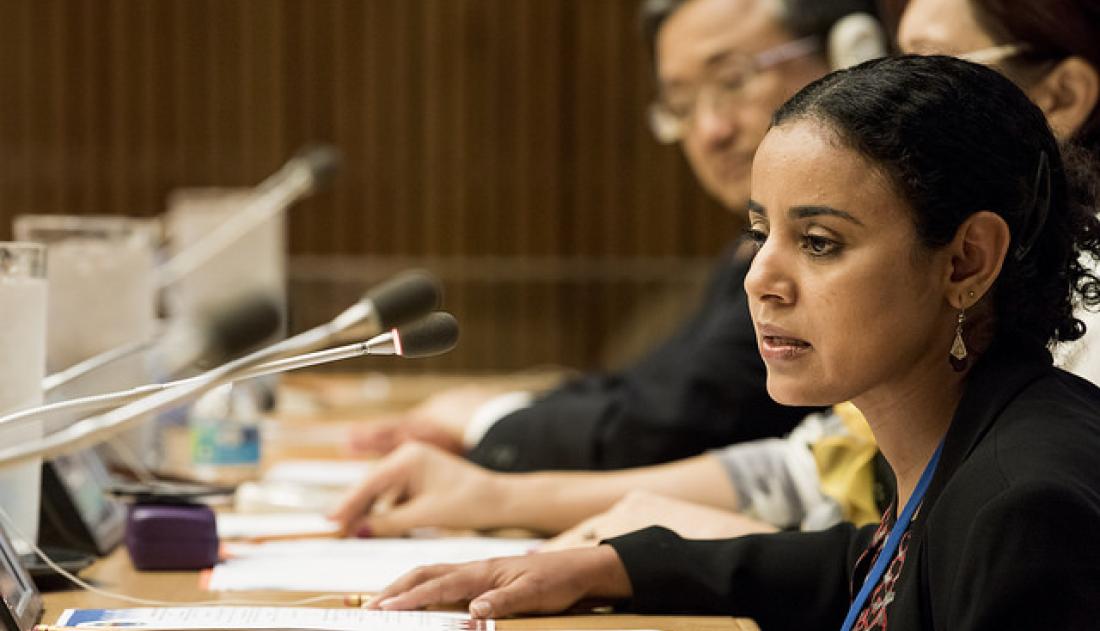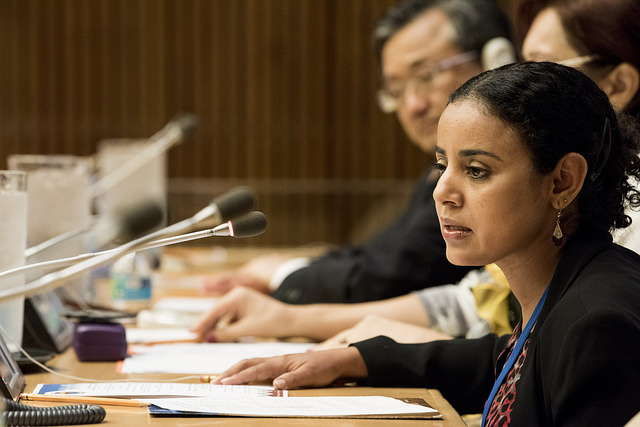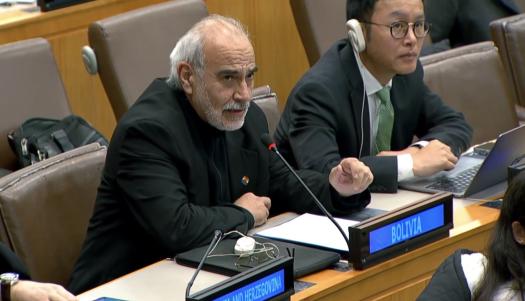
 United Nations Headquarters, New York – Today marks the tenth anniversary of the adoption of the United Nations Declaration on the Rights of Indigenous Peoples by the UN General Assembly in 2007.
United Nations Headquarters, New York – Today marks the tenth anniversary of the adoption of the United Nations Declaration on the Rights of Indigenous Peoples by the UN General Assembly in 2007.
No words can describe the feeling of joy, ten years ago, when the Declaration after thirty long years of struggle in its drafting was finally adopted. With the Declaration, Indigenous Peoples now got an international standard that specifically articulated their individual and collective rights as well as their rights to identity, language, health, education and other issues. Over the following years, the Declaration on the Rights of Indigenous Peoples began to have international and national impact across the world. Some countries now recognise Indigenous Peoples in their constitutions; others have legislation and policies in place to address historical injustices and promote the rights, identity and worldviews of Indigenous Peoples. National and regional courts are invoking the Declaration to protect Indigenous Peoples’ rights. These are good news that we need to learn from and bring forward.
However, much more needs to be done. Despite good intentions, good laws and progressive human rights instruments, there remains a gap between words and actions. Indigenous Peoples continue to face marginalization, discrimination and violations to their rights. While there has been progress, it has been slow, uneven and not able to make a difference in the lives of many Indigenous Peoples. In all corners of the world, Indigenous Peoples are increasingly being displaced and challenged by major investment and development projects that are encroaching on their lands, territories and resources. When Indigenous Peoples stand up to protect their lands, they are faced with harassment, violence and assassination. Over the past two years, we have seen an alarming rise in the killings of Indigenous human rights defenders. In many ways, Indigenous Peoples are facing even greater struggles and rights violations than they did 10 years ago.
We have positive experiences to build on. In the Outcome Document of the 2014 World Conference on Indigenous Peoples, States commit to concrete and operational steps on how to take the Declaration forward. The 2030 Agenda promises to leave no one behind. And indigenous peoples and their own institutions stand ready to work constructively with Governments, the UN system and other stakeholders to ensure that the UN Declaration as the minimum standards for the survival, dignity and well-being of Indigenous Peoples is being met on the ground. Let us not wait for the next ten years to assess progress again. Let us build on the positive experiences and continue by taking concrete actions on the commitments to recognize Indigenous Peoples and overcome any obstacle for the full enjoyment of their rights.
View the PDF version here
 Welcome to the United Nations
Welcome to the United Nations


